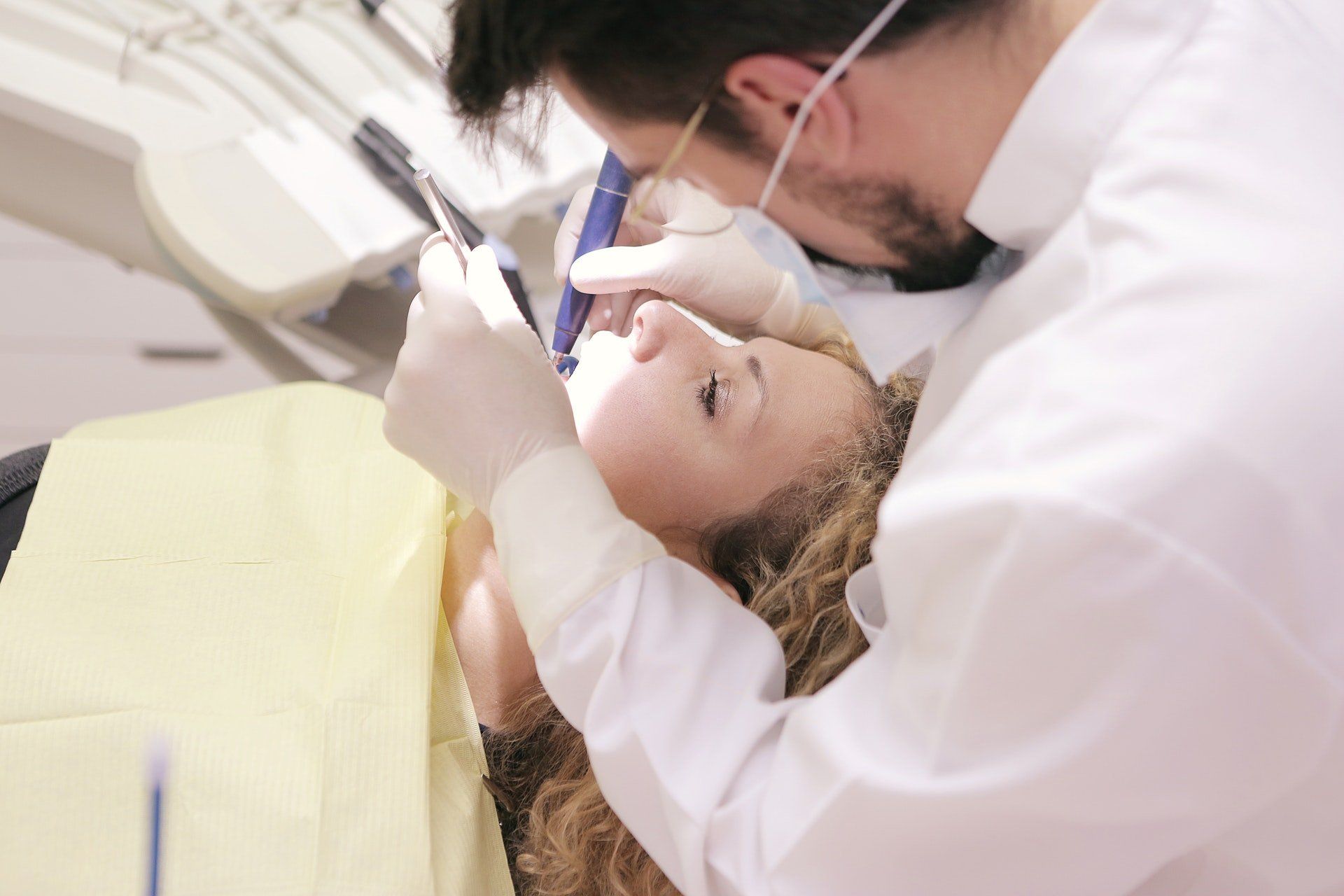What Are the Common Causes of TMD?

Do you want to know what the common causes of TMD are? Read this article to discover what causes TMD and how a dentist in Burke VA can help!
Temporomandibular disease is one of the most complex degenerative dental conditions. TMD is sometimes called the "chameleon" of dental problems because the disorder often manifests through a wide range of symptoms and causes.
Estimates show that around 10 million Americans have TMD, and many of those cases go undiagnosed. In this article, your dentist in Burke, VA, will overview the causes of TMD.
If you experience any of these symptoms, don't hesitate to schedule an examination at our office so Dr. Lynch can help you receive prompt and effective treatment.
What Are Common Causes of TMD?
TMD results from the misalignment of the temporomandibular joints that connect the lower jawbone to the sides of the skull. The TMJs are delicate, and any imbalance or disruption of the joints can cause them to fall out of alignment.
One of the most common causes of TMD is poor alignment of the teeth. The alignment of the jaws relies on the proper alignment of the teeth and, especially, the molars.
Poor dental alignment is known as malocclusion. During your dental check-ups and exams, Dr. Lynch will look for this common dental problem.
Using advanced x-rays and other forms of imaging, Dr. Lynch will determine if your malocclusion is behind your jaw discomfort. If dental alignment problems are causing TMD symptoms, Dr. Lynch may offer a wide range of treatment options that could include Invisalign, dental reconstruction, implants, and other treatment options.
Beyond dental alignment problems, Dr. Lynch commonly sees the following common causes of TMD.
Orthopedic Problems
Orthopedic issues relate to the musculoskeletal system. Since the TMJs involve a network of muscles, bones, and ligaments, orthopedic problems like inflammation, strained tendons, sore muscles, and joint problems may underly your TMD symptoms.
Genetics
The shape of the jaws and alignment of teeth often result from genetic factors. Accordingly, TMD often has hereditary elements. If either of your parents or any relative has or had TMD, you are likely at higher risk of developing this degenerative condition.
Gender
According to the National Institutes of Health, women are up to twice as likely to develop TMD during their lifetimes. Hormones may play a factor in this disproportionate gender role. Research suggests that the genetic role is tied to pathogenesis and the female hormonal axis.
Psychological Stress
It is well known that stress can manifest in physical forms. The jaws are vulnerable to manifestations of psychological stress. Jaw clenching, for example, often results from psychological duress.
If you are diagnosed with TMD, your dentist may recommend counseling or therapy as a means of treating your TMD. Other treatment options may include breathing exercises, meditation, and even exercise.
Bruxism
TMD and bruxism are closely related. In some cases, TMD may cause nighttime teeth grinding. In other situations, bruxism may lead to TMD.
Bruxism refers to the involuntary grinding of teeth at night. The condition forces the jaw muscles to tighten at night. Over time, this extreme clenching can lead to teeth that are chipped, worn, or even cracked.
One of the first things Dr. Lynch will look for is signs of bruxism. If you wake up with sore jaw muscles, you may have this serious but treatable condition. Dr. Lynch offers neuromuscular dentistry to treat your symptoms.
Physical Injury
If you have experienced a sudden impact or injury to the face or jaw, you may be at greater risk of developing TMD. The TMJs are very sensitive, and any injury may cause minor misalignments of the TMJs that can result in TMD symptoms.
In some cases, the TMD symptoms will subside as your injury heals. If you require any medical interventions, Dr. Lynch will provide you with several treatment options that can restore comfort and function to your bite.
Certain Medical Conditions
Fibromyalgia affects around 2% of the U.S. population. Symptoms include pain and stiffness of the face and body. The condition often leads to TMD symptoms.
Degenerative joint disease and congenital defects are other common causes of TMD.
Arthritis
Inflammation or swelling of the TMJs can quickly lead to TMD symptoms. The TMJs are susceptible to arthritis due to the wear that the TMJs are subjected to on a regular basis.
Arthritis can be treated using medications. TMD symptoms related to arthritis tend to flare up and subside at steady intervals.
Diet
Although diet is rarely the cause of TMD, what you eat can affect your symptoms. Managing TMD often requires avoiding hard foods that can stress your jawbones.
Foods that require hyperextending the jaws can also lead to flaring of TMD symptoms. Corn on the cob is one such example of a food that requires opening the jaws and possibly aggravating the TMJs.
If you live with TMD symptoms, a member of our team will discuss lifestyle and dietary changes that can help you manage your TMJ symptoms.
Schedule Your Dentist in Burke, VA, Visit Today
Now that we have explored the common causes of TMD, consider scheduling a visit with your dentist in Burke, VA. Dr. Lynch is focused on delivering the best dental care possible. With regular visits to our office, you can enjoy the benefits of optimal oral health, comfort, and a beautiful smile.
TMD is a complex disease that requires an experienced dentist who has years of experience delivering neuromuscular dentistry treatments that provide long-term relief from TMD symptoms.
If you believe that any of the causes listed in this article may be causing jaw pain or discomfort, contact our office today to schedule your TMD exam. We look forward to restoring comfort to your bite.












